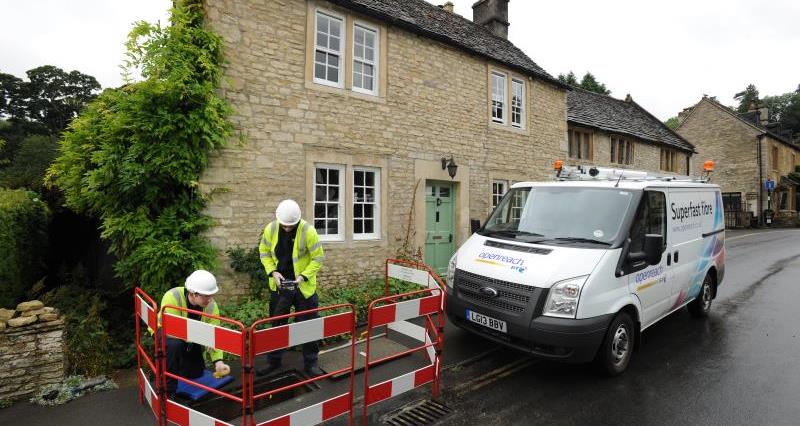That was the message from the NFU as it unveiled the results of its annual broadband and mobile survey.
While the findings offered improvements on last year, with, for example, 94% now having some access to 4G (74%) or 5G (20%), NFU Vice President Rachel Hallos said improvements to access “need to go further”.
Results showed:
- Only half (51%) of 755 NFU members felt they had an acceptable mobile signal, with just 24% able to make or receive a call across their whole farm.
- Just 58% had the broadband speeds their businesses needed – 10 percentage points higher than last year – but 10% were still among the UK’s slowest, with less than 2 Mpbs (megabits per second).
Safety impacts
There was an increase in those meeting Ofcom’s definition of minimum ‘decent’ broadband, with only 25% now below the 10 Mbps mark, down from 42% in the previous survey. However, nationally the regulator says only 1% of UK premises cannot access 10 Mbps speeds.
Around a third of respondents had fibre connections, up 10 percentage points, but well behind the 57% national average. And while satellite is often touted as the solution to hard-to-reach areas, and speeds are increasing, take-up in the survey remains low, at 8%, and costs continues to impact rollout.
NFU Vice President Rachel Hallos said that poor connectivity was making it harder to run effective, food producing businesses – especially at a time when they needed to meet more of their legal and regulatory obligations online.
“This impacts not just the day-to-day operations of rural businesses, but also the safety of our workforce.”
NFU Vice President Rachel Hallos
“It’s very worrying that three-quarters of farmers still have mobile signal gaps on their farms,” she said.
“This impacts not just the day-to-day operations of rural businesses, but also the safety of our workforce.”
She added that unreliable mobile signals in an industry where lone working is a feature was “dangerous”.
Safety impacts
“A lack of access is preventing UK farmers and growers from doing what they do best – running successful and profitable food producing businesses,” Rachel added.
“We welcome the new government’s pledge to deliver gigabit broadband and 5G by 2030. However, we need detailed plans and a timeline on how this will be delivered, particularly in rural areas.
“We are told again and again that food security is a major priority for the government. To confidently produce more of what we do well in the UK, we need to be as efficient and productive as possible. Reliable internet and mobile access are key to achieving this.”
The NFU is calling for a results-driven approach to broadband in rural areas that focuses on all types of connections, such as “rural-proofed” satellite – and not just fibre.
Download the results in full at: NFU 2023 digital access survey results
Results breakdown
 |
24% of respondents get a reliable mobile signal in all outdoor locations on farm. |
 |
20% of respondents have access to 5G on their smartphone. |
 |
97% of respondents believe that mobile signal is important for their business. |
 |
10% have a download speed of 2 Mbps or less. |
 |
34% of respondents have fibre broadband. |
 |
69% of respondents access internet through mobile signal. |
 |
51% of respondents believe that the mobile signal they receive is sufficient for the needs of their business. |
 |
92% of respondents believe broadband is essential for their business. |
 |
58% of respondents believe that broadband speed is sufficient for the needs of their business. 28% of respondents say that if their business had faster broadband speeds, they would improve the speed, efficiency, and frequency of business tasks. |
